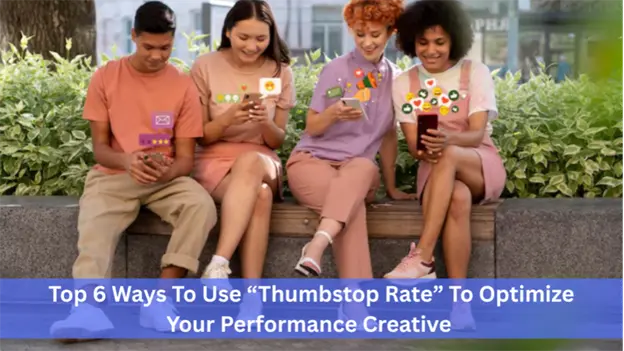
For decades, marketing was a one-way street. Brands with big budgets created glossy television ads and magazine spreads, broadcasting their message to a passive audience. Trust was built on brand reputation and polished campaigns. Today, that model has been turned on its head. One of the most powerful marketing tools isn’t a clever slogan; it’s a simple, personalized bonus code shared by a YouTuber or Twitch streamer.
The rise of the “influencer code” represents a fundamental shift in how trust is built. We have moved from an era of corporate authority to one of peer-to-peer recommendation. Consumers, particularly younger generations, are rightfully skeptical of traditional advertising. They are far more likely to trust a creator they follow and admire than a faceless corporation. This has ignited a booming “creator economy” where authenticity isn’t just a buzzword—it’s the most valuable currency.
The “Why”: The Psychology Behind the Code
The power of an influencer bonus code isn’t just about the discount; it’s rooted in a potent combination of psychological principles that social media has amplified. Understanding these principles is key to understanding modern marketing.
Parasocial Relationships and Trust
This is the most crucial element. A “parasocial relationship” is the one-sided bond that a viewer forms with a media personality. When we watch a streamer for hundreds of hours, we feel like we know them. We are invested in their stories, their successes, and their failures. This creates a powerful sense of familiarity and trust. When that trusted creator recommends a product or service and offers a personalized code, the recommendation feels less like an advertisement and more like a helpful tip from a friend.
Authenticity and Niche Expertise
The best influencer marketing feels authentic. A creator who is a genuine expert in their niche (e.g., a pro gamer reviewing a new headset, or a beauty guru recommending a skincare product) has immense credibility. Their audience trusts that the recommendation is based on genuine experience. This is why brands are increasingly seeking out micro-influencers with smaller, highly engaged communities, as their recommendations often carry more weight than those from a mega-influencer promoting dozens of different products.
Exclusivity and Social Proof
A personalized code (“Use code ‘STREAMER10’ for 10% off!”) creates a sense of exclusivity. It makes the viewer feel like they are part of an “in-group” with access to a special deal. Furthermore, when they see other members of the community in the chat or comments talking about using the code, it provides powerful social proof that reinforces their decision.
This marketing model has been adopted across virtually every digital industry. E-commerce brands, mobile games, and online entertainment platforms all leverage the power of personality to reach new audiences. For example, it is now common for a digital platform, such as the one found at https://hitnspin.casino, to partner with content creators who can demonstrate the platform’s features to a dedicated and trusting audience, often providing a unique code as an incentive to sign up.
The “How”: Anatomy of a Winning Influencer Campaign
A successful campaign is far more than just giving a creator a code. It’s a strategic partnership that must feel organic to the audience to be effective. The goal is collaboration, not a simple transaction. These are the essential components of a successful partnership:
- The right match. The brand must partner with a creator whose audience, values, and content style align with their product. A mismatch is immediately obvious to the audience and will be perceived as inauthentic, potentially backfiring on both the brand and the creator.
- Creative freedom. The most effective campaigns allow the creator to integrate the product into their content in their own unique style. A scripted, robotic ad-read is a relic of old media. A genuine, unscripted recommendation or a creative integration that feels natural to the creator’s content is far more impactful.
- A clear and valuable offer. The bonus or discount offered through the code must be genuinely appealing. It serves as the call-to-action and rewards the audience for their trust in the creator’s recommendation. This model is especially prevalent in the online entertainment and gaming sectors. For a platform in a competitive space, partnering with a trusted streamer is key. A successful bonue, for instance, isn’t just a discount; it’s a co-sign from a creator that tells their audience the platform is legitimate and entertaining.
- Full transparency. Modern audiences are savvy and value honesty. Regulations in many countries now require clear disclosure of sponsored content (e.g., with hashtags like #ad or #sponsored). This transparency, rather than hurting a campaign, builds even more trust by showing respect for the audience.
Of course, the model is not without its pitfalls. The line between a genuine recommendation and a cynical cash-grab can be blurry. When creators promote products they clearly don’t use or believe in, or when a sponsorship is not transparently disclosed, it can shatter the trust they have spent years building with their audience.
The community is quick to punish what it perceives as “selling out,” and a creator’s reputation can be permanently damaged. Furthermore, in sensitive or regulated industries, there is a significant ethical responsibility on both the brand and the influencer to ensure that the promotion is done in a responsible, compliant, and honest manner.
The Future of Marketing is Personal
The influencer code is more than a trend; it’s a clear signal that the future of marketing is personal, decentralized, and built on authentic human connection. Consumers are no longer passive recipients of advertising. They are active participants in communities, and they place their trust in the leaders of those communities. For brands, this means giving up a degree of control and learning to collaborate with creators as genuine partners. The brands that succeed in this new landscape will be those that understand they are not just buying ad space; they are earning the trust of a community, one creator at a time.



